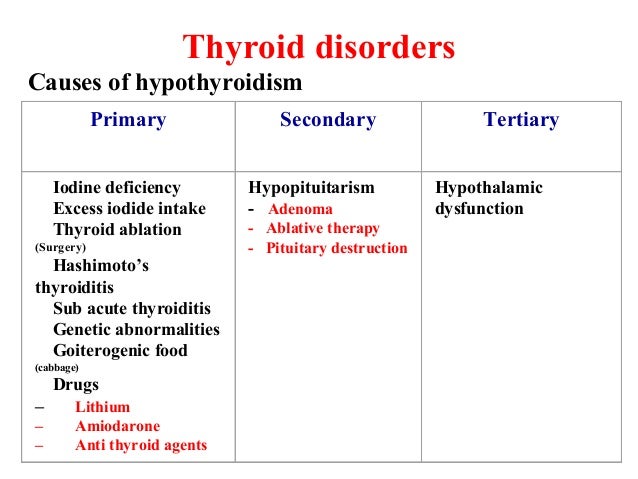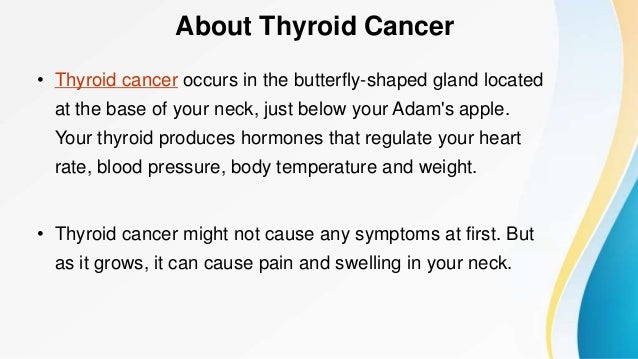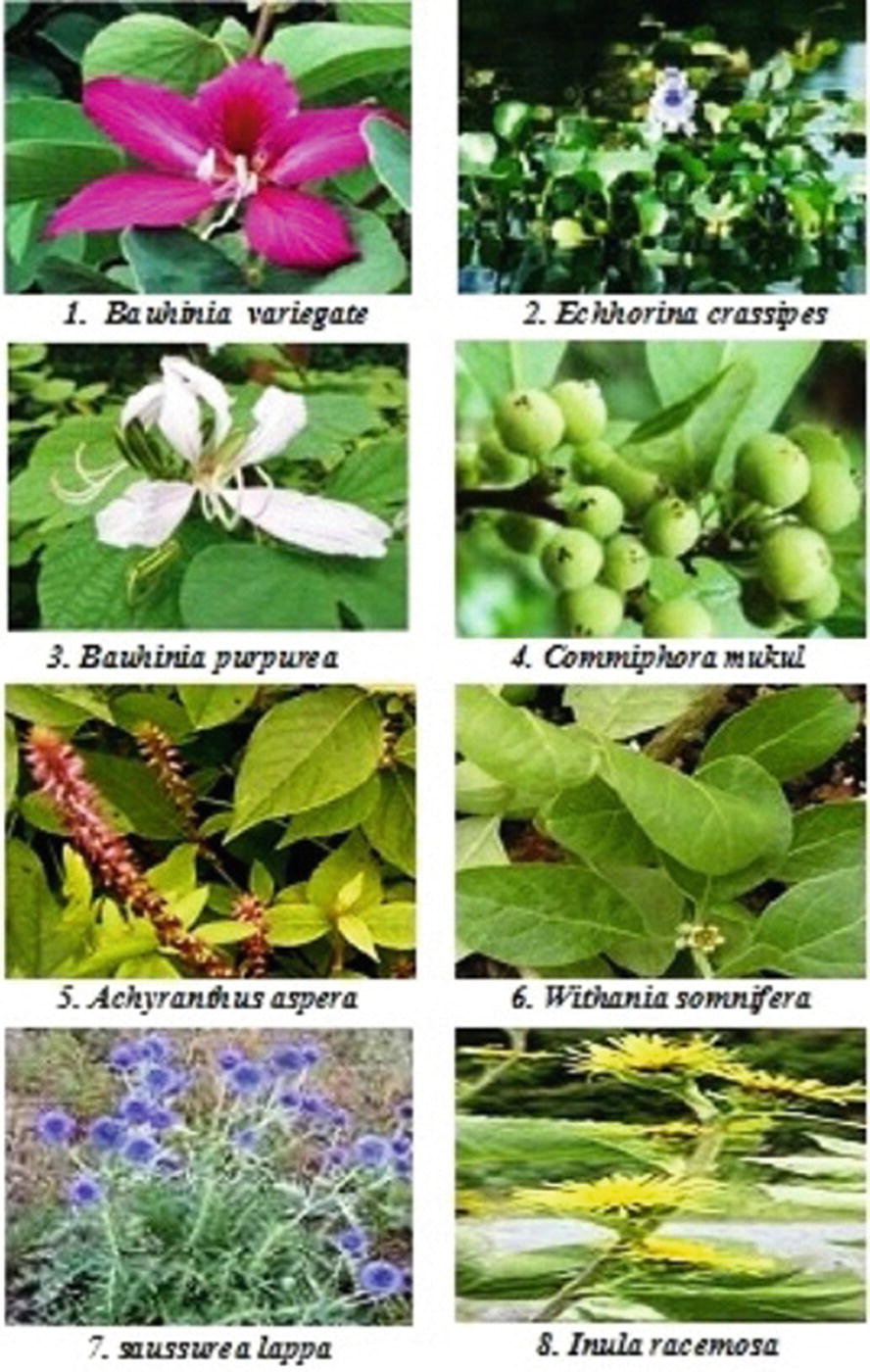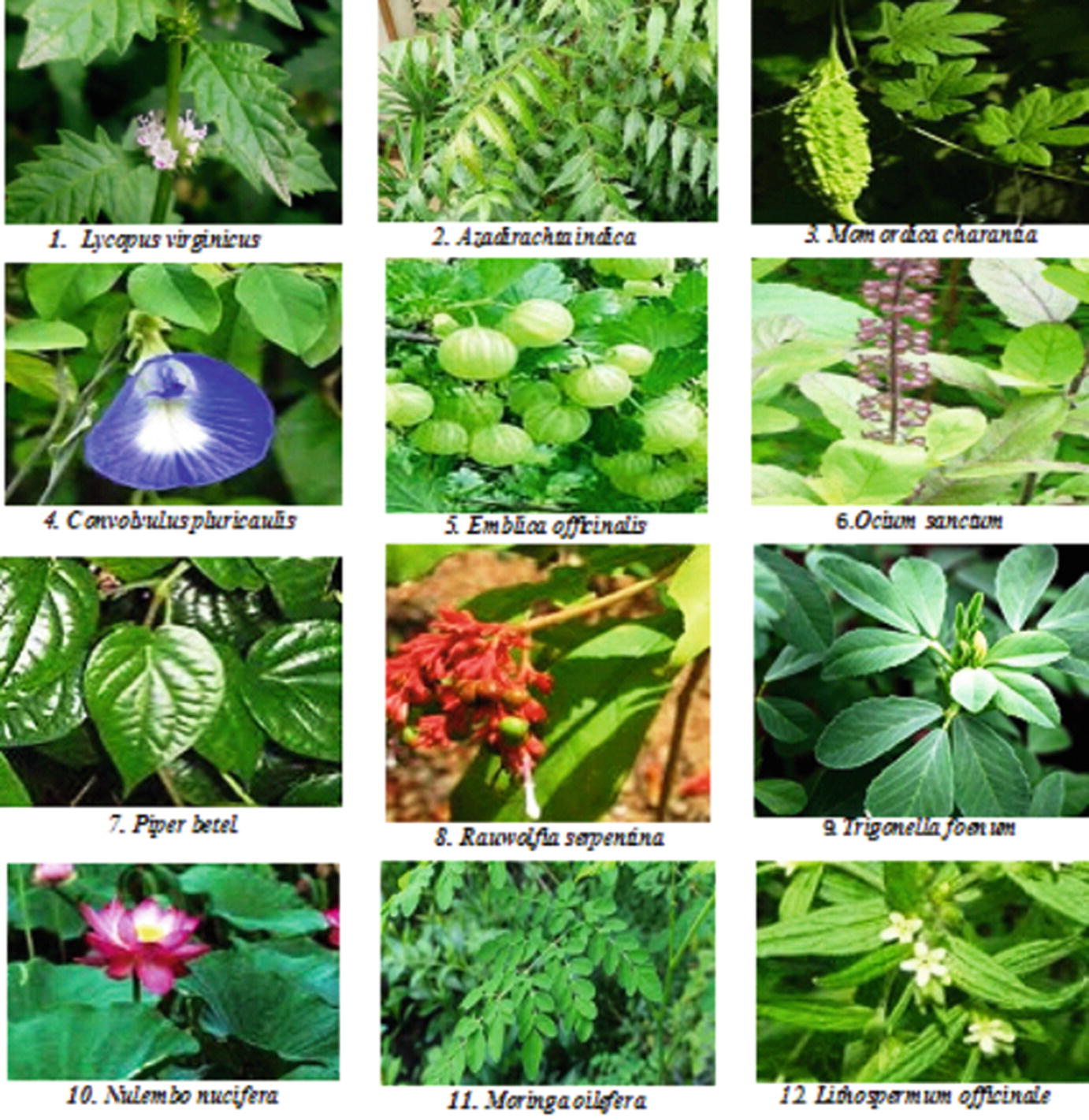108 Glen Osmond Road, Parkside

Thyroid problems affect the thyroid, a gland in the neck that helps control many of the body’s most important metabolic processes, such as heart rate, blood pressure, body temperature and weight.
If your thyroid becomes overactive (hyperthyroidism), underactive (hypothyroidism), or cancerous, you could experience a range of health problems.

The main types of thyroid problems are :
Hyperthyroidism – this is when your thyroid makes too much thyroid hormone. The most common symptoms of hyperthyroidism are nervousness, heat intolerance, heart palpitations, tiredness and weight loss.

Hypothyroidism– this is when your thyroid does not make enough thyroid hormone. Hypothyroidism can go on for years without showing any signs. When symptoms do appear, they can be quite varied and can include fatigue, increased sensitivity to cold, constipation, dry skin, weight gain, thinning hair, poor memory and depression.

Thyroid cancer – this is when some of your thyroid cells become cancerous. Thyroid cancer is more common in women than in men and is usually diagnosed in people’s fifties. It can usually be treated successfully.

Other thyroid problems include nodules that grow in the thyroid, an inflamed thyroid, and an enlarged thyroid (goiter). Read more about HASHIMOTO's THYROIDITIS here :- https://www.lifelineherbal.com.au/treatments/hashimotos-thyroiditis-disease-ayurvedic-herbal-treatment.html
Ayurvedic Natural Herbal Treatment for Thyroid Problems :
As per ayurveda thyroid problems may be caused by Pitta imbalance. Hence, patients may experience a variety of differing symptoms such as sensitivity to cold, dryness of the skin, Constipation, Anorexia, Angina pain, Anemia and disordered menstrual function due to the underlying thyroid imbalance. Ayurvedic treatment provides natural remedy for Thyroid problems with customized herbal medicines, detoxification of the body through panchakarma, diet and lifestyle advice which addresses the root-cause of the problem.
Ayurvedic Approach to Hypothyroidism :
According to Ayurveda, the function of the thyroid is controlled by Pitta (agni) dosha. The metabolic processes that are carried out by the thyroid hormone are actually controlled by the pitta dosha. Ayurveda says that in Hypothyroidism Pitta dosha is covered by Kapha dosha which in turn diminishes cellular metabolism.
Treatment of Hypothyroid in Ayurveda :
Ayurveda can effectively treat Hypothyroid in a natural and safer way. Ayurvedic treatment of hypothyroid is aimed at removing the kapha dosha that is coated over the pitta dosha. In this way pitta dosha can perform its functions normally. The factors such as healthy diet and lifestyle as well as regular exercise are given equal importance by Ayurveda along with treating the disease by Herbal medicines.
Ayurvedic herbs and herbal formulations used for Hypothyroid are :

Ayurvedic Therapies used :
Panchakarma and external therapies like Vamana, shirodhara, virechana, basti, udwarthanam, Kashaya Seka are shown to play a significant role in managing symptoms of hypothyroidism.
Yoga :
Specific Asanas and Pranayamas that are directed at the thyroid have been proven to be beneficial. These include : Sarvangasana, Matsyasana, surya namaskara, pavan muktasana, and halasana.
Lifestyle Changes:
In addition to the above, meditation and regular exercises to maintain a healthy lifestyle, reduce stress, and manage weight have shown to help control symptoms to a large extent.
Ayurvedic Approach towards Hyperthyroid :
Improper digestion of food leads to improper functioning of the thyroid gland by blocking the small channels in the body. The disorder is believed to occur due to aggravation of vata and pitta dosha. Imbalanced vata and pitta go into minute channels of the body and in turn causes the symptoms of Hyperthyroidism. The aggravated two doshas leads to the overstimulation of gastric fire and in turn causes increased appetite. As pitta is very hot, there will be excessive sweating and intolerance towards heat.
Treatment of Hyperthyroid in Ayurveda :
The main aim of the treatment of Hyperthyroid in Ayurveda involves the clearance of the blocked channels. This will balance the body energies and in turn restore the proper circulation and production of thyroxine hormone by thyroid gland.

Yoga :
Pranayama and reflection additionally help in ruling over disturbed vata and pitta.
Contact expert Ayurvedic doctors at Life Line Ayurvedic Herbal Clinic to manage all your thyroid related problems through a specific herbal treatment plan.
Disclaimer : Sandeep Kumar and Anupam Vasudeva are not GP, they have Ayurveda medical degree from India where it is considered equal to any other medical degree. This qualification is recognized in Australia by vetassess governing body as Complementary Health Therapists. Life Line Ayurvedic Herbal Clinic does not claim to cure a disease or terminal illness and does not create any unreasonable expectation of beneficial treatment. Ayurvedic medicines and treatments are generally considered to be safe but rarely may be associated with possible adverse reactions in individual cases. We recommend seeking urgent medical attention in the case of an adverse reaction. This website provides you with information. You must contact your Ayurvedic or another health professional before you apply them. Read More